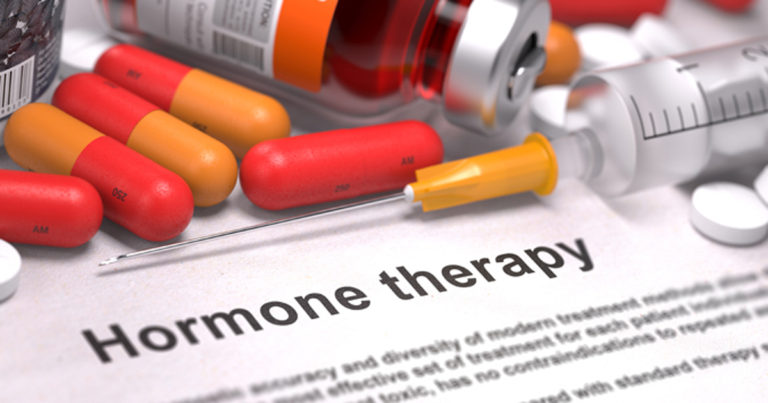
April 29, 2021
4 min read
Source/Disclosures
McNamara M. LGBTQ Health: A Practical Approach. Presented at: ACP Internal Medicine Meeting; April 29-May 1, 2021 (virtual meeting).
Disclosures:
McNamara reports no relevant financial disclosures.
Marginalization and stigma are directly related to poor physical and mental health outcomes, according to a speaker at the ACP Internal Medicine Meeting, held virtually.
LGBTQ patients are among those who are affected, so Megan McNamara, MD, MS, a professor of medicine at Case Western Reserve University School of Medicine, offered practical tips that physicians can consider when treating these patients, including screening recommendations, when to prescribe preexposure prophylaxis (PrEP), how to manage patients receiving cross-sex hormone therapy, and more.

Photo source: Adobe Stock.
Gay and bisexual men
Compared with heterosexual men, data show that gay and bisexual men have higher rates of psychological distress, tobacco use, alcohol consumption, HIV and other sexually transmitted infections (STIs), so it is important to screen for these risk factors and conditions, McNamara said. Most new HIV diagnoses occur among younger men who have sex with men (MSM) aged 13 to 34 years, according to CDC data. However, older patients are still at risk.
“In my own practice, most of my patients actually are older individuals, so, I want to make sure that I’m not thinking that they’re not at risk,” McNamara said. “Taking a thorough sexual history and assessing risk for HIV is as important in older people as it is in younger people.”
To prevent HIV in MSM, the CDC recommends offering PrEP to those who are HIV negative, had male sex partners within the past 6 months, are not in a monogamous relationship and had anal sex or a bacterial STI in the past 6 months. There are two PrEP regimens that are available in the United States: Truvada (emtricitabine/tenofovir disoproxil fumarate; FTC/TDF) and Descovy (emtricitabine/tenofovir alafenamide [F/TAF]; Gilead Sciences).
McNamara said both regimens are “equally effective” against HIV infection and have similar safety profiles. The “key difference,” she said, is that Descovy is safe for patients with an estimated creatinine clearance greater than 30 mL/min.
“The same is not true for Truvada,” McNamara said. “For Truvada, you have to have an estimated creatinine clearance greater than 60 mL/min to use it.”
Lesbian and bisexual women
Similar to MSM, according to McNamara, lesbian and bisexual women are disproportionately affected by psychological distress, tobacco use and heavy alcohol consumption. They are also more likely to be overweight or obese. McNamara cited data in the American Journal of Public Health that showed lesbian women had more than twice the odds of being overweight (OR = 2.69) or obese (OR = 2.47) compared with heterosexual women. Bisexual women also had slightly higher odds for being overweight (OR = 1.38) compared with heterosexual women.
In light of the data, McNamara said that physicians should assess lesbian and bisexual women for cardiovascular risk factors, “because we know increased rates of tobacco use, obesity and overweight can increase the patient’s risk for CVD.”
Other data show that lesbian and bisexual women are less likely to undergo cervical cancer screening, and lesbian women are less likely to complete an HPV vaccination series, so physicians should offer cervical cancer screening in accordance with current guidelines and discuss the benefits and risks of HPV vaccination in unvaccinated patients aged between 26 and 45 years, according to McNamara.
Transgender patients
When treating patients who are transgender, it is important to screen for mental health, which has been shown to be five times higher among transgender patients compared with the general population, as well as suicidality, which is nine times higher among transgender patients than the general population, McNamara said.
“I can tell you that in my own practice, these data ring true,” she said. “Many, many of my patients have attempted suicide, so it’s really something you want to think about right away.”
Physicians should also screen transgender patients for HIV, as their rate of new diagnoses was more than three times higher than the national average in 2017, according to McNamara. CDC data show that an estimated 44% of Black or African American transgender women and 26% of Hispanic and Latina transgender women have HIV compared with 7% of white transgender women.
Cross-sex hormone therapy is another important aspect of care — even “medically necessary” — for many transgender patients, McNamara said. There are clear benefits of the therapy, including improvements in quality of life, she added. Still, physicians should assess patients for contraindications, including pregnancy, unstable CVD and polycythemia for transmasculine cross-sex hormone therapy, and estrogen-sensitive cancer, end-stage liver disease and a history of venous thromboembolism (VTE) for transfeminine cross-sex hormone therapy, McNamara said.
She warned that transmasculine cross-sex hormone therapy is associated with an increased risk for erythrocytosis, but there are ways that physicians can help reduce this risk.
“Basically, you just want to keep the hematocrit less than the upper limit of normal,” she said. “In my institution, I try to keep the hematocrit less than 51%. Sometimes, I do have to decrease testosterone dosing to make sure that the patient doesn’t develop significant erythrocytosis.”
McNamara also recommended counseling patients who are interested in receiving transfeminine cross-sex hormone therapy about the risk for VTE. In addition, there have been recent concerns that transfeminine cross-sex hormone therapy may increase the risk for cerebrovascular accident, she added.
However, there are “significant consequences” to abruptly discontinuing cross-sex hormone therapy, including “significant emotional and mental distress,” she said. While patients should be advised about these risks, it does not mean they need to stop treatment unless they develop “an acute life-threatening medical condition” or a hormone-dependent malignancy, according to McNamara.
“The vast majority of patients who are treated with hormone therapy really consider it a life-sustaining treatment just like metformin or an [angiotensin-converting enzyme] inhibitor,” she said. “It’s important to consider cross-sex hormone therapy just as much as a factor in their everyday life as managing their diabetes or hypertension.”
